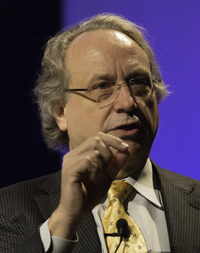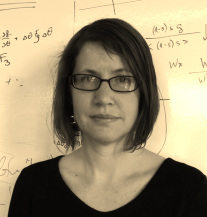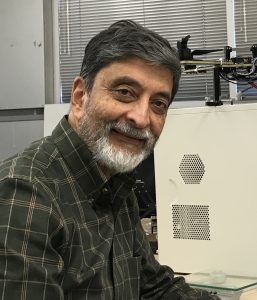Meet the ICRA 2018 plenary speakers
Professor Rodney Brooks

Presentation title: Robots and People; the Research Challenge
Rodney Brooks is the Panasonic Professor of Robotics (Emeritus) at the Massachusetts Institute of Technology where he was director of the Computer Science and Artificial Intelligence Laboratory (CSAIL) until 2007. He completed an M.Sc. at the Flinders University of South Australia (with a thesis in Machine Learning, and no, it is way too embarrassing to share), and then a machine vision Ph.D. in Computer Science at Stanford University in 1981. He was a post-doc at CMU and MIT, and on the faculty at Stanford from 1983-1984, before joining the MIT faculty. His research has concentrated on machine vision, mobile robots, humanoid robots, and Artificial Life. In addition he was co-founder of iRobot Corporation, and founder of Rethink Robotics. He is a member if the US National Academy of Engineering, a Fellow of the Australia Academy of Science and a Fellow of the Australian Academy of Technology and Engineering.
Raia Hadsell

Presentation Title: Deep reinforcement learning for real-world challenges
Raia Hadsell, a senior research scientist at DeepMind, has worked on deep learning and robotics problems for over 10 years. Her early research developed the notion of manifold learning using Siamese networks, which has been used extensively for invariant feature learning. After completing a PhD with Yann LeCun, which featured a self-supervised deep learning vision system for a mobile robot, her research continued at Carnegie Mellon’s Robotics Institute and SRI International, and in early 2014 she joined DeepMind in London to study artificial general intelligence. Her current research focuses on the challenge of continual learning for AI agents and robots. While deep RL algorithms are capable of attaining superhuman performance on single tasks, they often cannot transfer that performance to additional tasks, especially if experienced sequentially. She has proposed neural approaches such as policy distillation, progressive nets, and elastic weight consolidation to solve the problem of catastrophic forgetting for agents and robots.
Professor Mandyam Srinivasan

Presentation Title: A new perspective on the birds and the bees: Biologically inspired aerial robotics
Srinivasan is a professor at the Queensland Brain Institute and the School of ITEE at the University of Queensland. His research focuses on the principles of visual processing, perception and cognition in simple natural systems, and on the application of these principles to machine vision and robotics. He holds a B.E. in Electrical Engineering from Bangalore University, an M.E. in Electronics from the Indian Institute of Science, a Ph.D. in Engineering and Applied Science from Yale University, a D.Sc. in Neuroethology from the Australian National University, and an Honorary Doctorate from the University of Zurich. He is a Fellow of the Australian Academy of Science, of the Royal Society of London, and of the German Academy of Science, Leopoldina.


